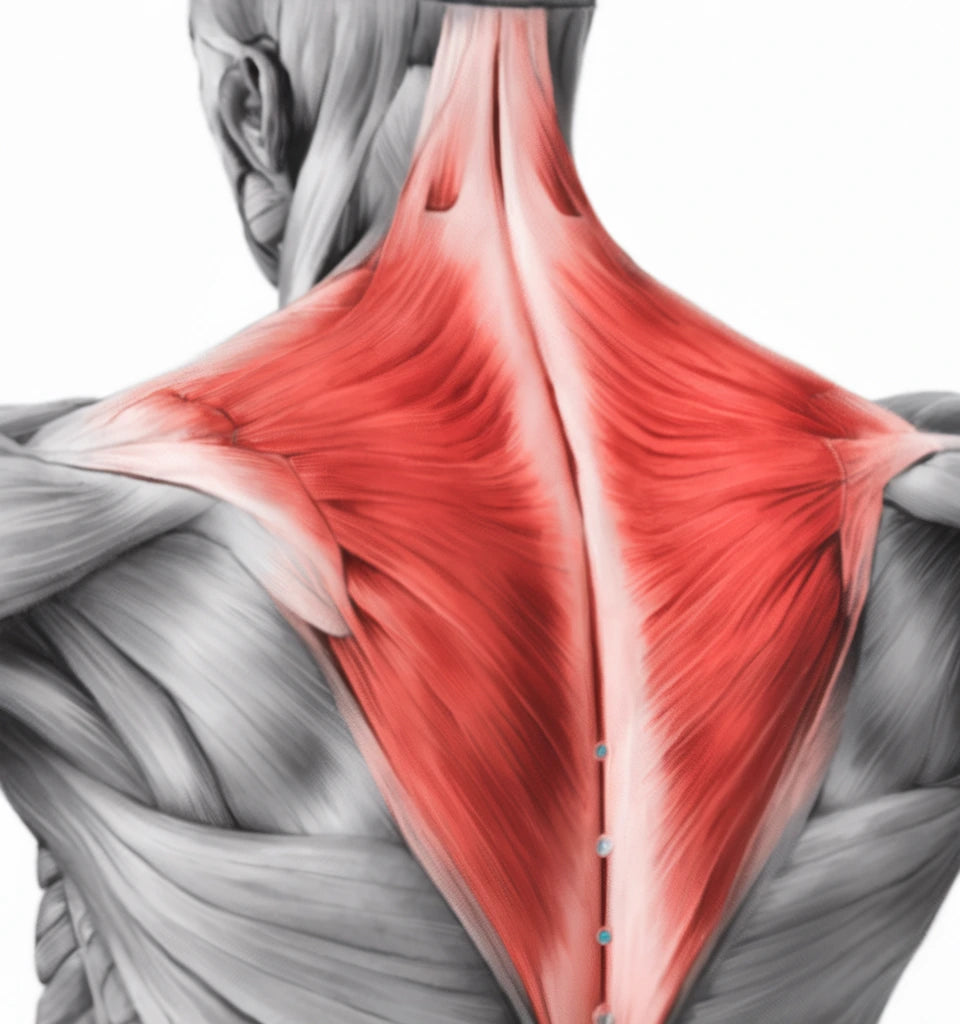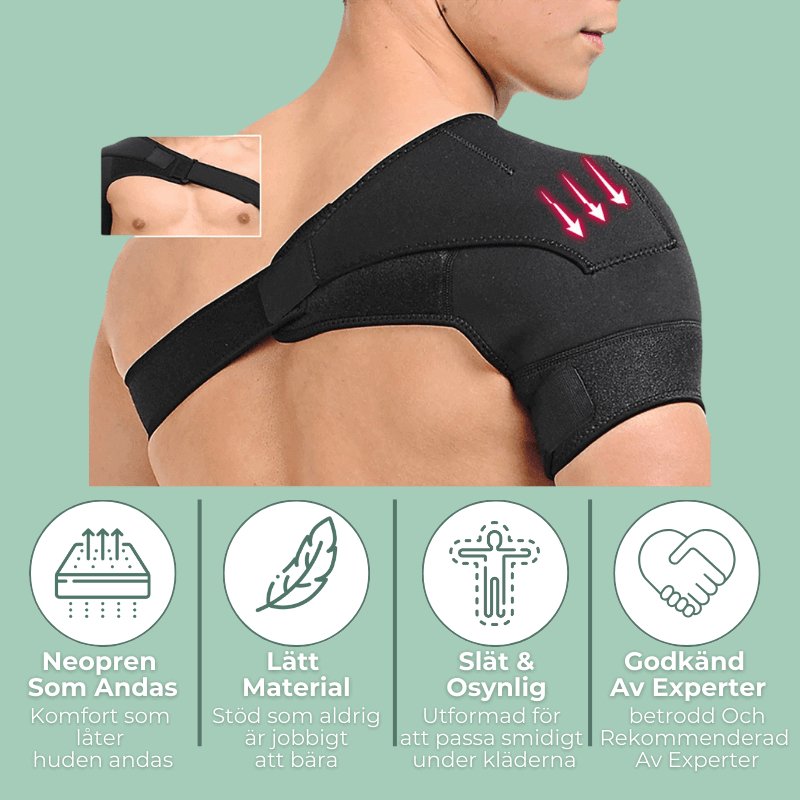Tight Shoulders and Neck: Symptoms, Causes, and Treatment

Shoulder and neck tightness is a common problem that can cause discomfort and limited mobility. This condition affects many people, especially those who have sedentary jobs or are exposed to prolonged stress. This article reviews the most common symptoms, causes, and treatment options for shoulder and neck tightness.
What are Tense Shoulders?
Tight shoulders mean that the muscles in the shoulder area are overworked, causing pain, stiffness and discomfort. Causes include stress, poor posture and overuse. Rest, stretching and massage can relieve symptoms.
This condition often affects the trapezius muscle, which runs from the neck over the shoulders. When this muscle becomes tight, it can lead to a range of problems that affect both the shoulders and neck at the same time. In some cases, shoulder tension can also cause symptoms similar to a neck lock or herniated disc in the neck, which can make diagnosis complicated.
Symptoms and signs: Neck stiffness, shoulder pain and common symptoms
Shoulder and neck tightness can manifest itself in a number of ways and affect a person's daily life. Common symptoms include:
- Stiffness and discomfort in the shoulders and neck: This is often the most prominent symptom. Many describe a feeling of heaviness or tension in the area.
- Limited mobility: It may be difficult to turn your head or fully raise your arms.
- Headaches: Tension in the neck and shoulders can often lead to tension headaches.
- Feeling of fatigue: Constant muscle tension can lead to an overall feeling of fatigue.
- Pain radiating into the arms: In some cases, the tensions can cause pain that extends down the arms.
- Tenderness to the touch: The tense muscles may be tender when pressed.
Some people also experience pain that radiates down into the chest or outwards towards the shoulder blade. Neck pain on one side is also common, especially if you frequently turn your head in the same direction for long periods of time. This can be similar to symptoms of cervicalgia, which is the medical term for neck pain.
Causes of tight shoulders: Why you often have pain and when to seek care
Several factors can contribute to the development of tense shoulders and neck:
- Poor posture: Prolonged sitting with a forward leaning posture is a common cause.
- Stress and anxiety: Emotional stress can lead to physical tension in the body.
- Overexertion: Intense exercise or physically demanding work can cause muscle tension.
- Sleep problems: Poor sleep quality or inappropriate sleeping position can contribute to tension.
- Ergonomic problems: An incorrectly adjusted workplace can lead to unnecessary strain on the neck and shoulders.
- Underlying medical conditions: Certain illnesses can cause or worsen muscle tension.
In some cases, tight muscles can cause a nerve to become pinched in the shoulder. Symptoms of a pinched nerve in the shoulder often include numbness, tingling, and a burning sensation that radiates down the arm. Long-term tension in the shoulders and neck can also affect the intervertebral discs in the neck, increasing the risk of a herniated disc.
Diagnosis and treatment of shoulder pain
Shoulder pain is a common problem that is often caused by tense muscles, poor posture or overexertion when working in front of a computer or mobile phone. To relieve the pain and regain normal mobility, a combination of exercise, heat and proper support for the shoulders is required.
Stretching and exercises
Regular shoulder and neck exercises improve mobility and reduce stiffness.
Shoulder Comfort™ supports correct posture during exercises and reduces strain on the shoulder joint.
Massage
Manual massage helps to release muscle tension and increase blood flow in the area.
Can be combined with Termoreliever™ for a deeper, warming effect.
Heat and cold therapy
Heat relieves muscle tension and promotes relaxation, while cold reduces inflammation and swelling.
Termoreliever™ offers both heating and cooling functions, making it ideal for changing needs.
Posture correction
Better posture reduces the risk of future shoulder tension and pain.
AxelKomforten™ helps the body maintain a natural position during work or rest.
Important to consider
For long-term relief, you should combine exercise, postural support and heat therapy. Regular stretching and light movement are essential to avoid recurring shoulder problems. In case of persistent pain, physiotherapy or medical advice may be needed to rule out underlying problems.

How AxelKomforten™ and Termoreliever™ can help: Support for shoulder and neck pain
AxelKomforten™ and Termoreliever™ offer several benefits for people with tense shoulders and neck:
- AxelKomforten™ provides support and improves posture, which can reduce muscle tension over time.
- Termoreliever™ offers both heat and cold therapy, which can relieve pain and dissolve muscle knots.
- The combination of these products can provide a comprehensive treatment for tense shoulders and neck.
- The products can be used both during work and rest for continuous support and relief.
- Regular use can help prevent future strains and improve overall comfort.
For people who experience neck and shoulder pain at the same time, these products can be especially valuable, as they address both problem areas. Many sufferers of stiff shoulders report a noticeable difference after using heat therapy followed by light stretching exercises supported by the ShoulderComfort™.
Conclusion: Summary and tips for managing shoulder, neck, and shoulder pain
Shoulder and neck tension is a common problem that can significantly impact quality of life. By combining lifestyle changes, regular exercise, and the use of supportive devices such as AxelKomforten™ and Termoreliever™, many people can effectively manage and prevent muscle tension. It is important to pay attention to your body's signals and take action early to prevent temporary tension from developing into chronic problems.
Addressing shoulder and neck tension often requires a combined approach that includes both acute relief and long-term changes. By identifying and addressing the underlying causes of the discomfort, you can not only relieve current symptoms but also minimize the risk of recurring problems.
Frequently Asked Questions (FAQ)
How often should I take breaks and stretch to prevent tense shoulders and neck?
It is recommended to take short breaks and stretch every 30-60 minutes, especially if you have a sedentary job.
Can stress really cause physical tension in the shoulders and neck?
Yes, stress can lead to increased muscle tension in the body, especially in the neck and shoulders. Stress management is therefore an important part of treatment.
How do I use Termoreliever™ for best effect on tense shoulders?
Use heat therapy to increase blood circulation and reduce tension. In acute inflammation, cold therapy may be beneficial. Follow product instructions for best results.
Can AxelKomforten™ be used during sleep to prevent morning stiffness?
The AxelKomforten™ is primarily designed for daytime use. For a better night's sleep, focus instead on having an ergonomic pillow and mattress.
When should I seek professional help for my tense shoulders and neck?
If the tension is persistent, intense, or affecting your daily activities despite self-care, you should consult a doctor or physical therapist for a thorough evaluation and treatment plan.

